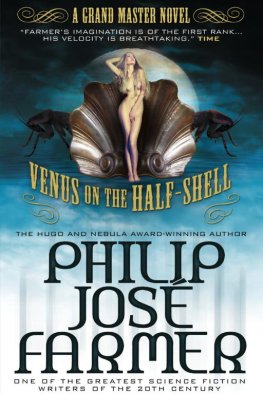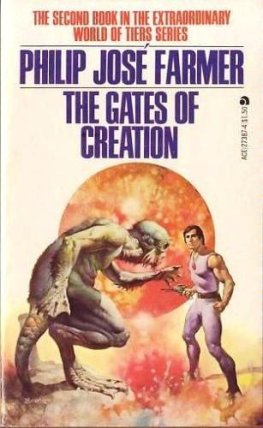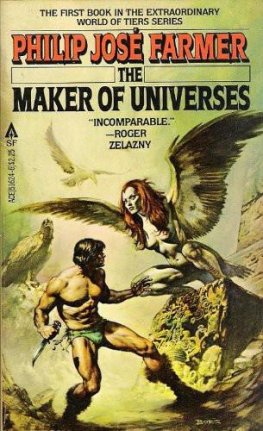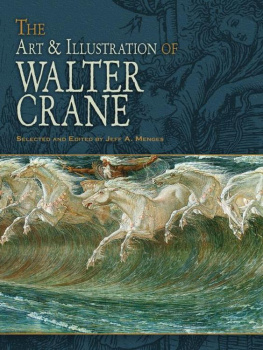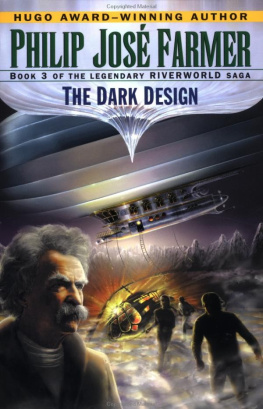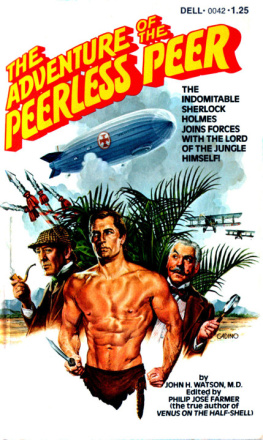Philip Farmer - They Twinkled Like Jewels
Here you can read online Philip Farmer - They Twinkled Like Jewels full text of the book (entire story) in english for free. Download pdf and epub, get meaning, cover and reviews about this ebook. genre: Science fiction. Description of the work, (preface) as well as reviews are available. Best literature library LitArk.com created for fans of good reading and offers a wide selection of genres:
Romance novel
Science fiction
Adventure
Detective
Science
History
Home and family
Prose
Art
Politics
Computer
Non-fiction
Religion
Business
Children
Humor
Choose a favorite category and find really read worthwhile books. Enjoy immersion in the world of imagination, feel the emotions of the characters or learn something new for yourself, make an fascinating discovery.

- Book:They Twinkled Like Jewels
- Author:
- Genre:
- Rating:5 / 5
- Favourites:Add to favourites
- Your mark:
- 100
- 1
- 2
- 3
- 4
- 5
They Twinkled Like Jewels: summary, description and annotation
We offer to read an annotation, description, summary or preface (depends on what the author of the book "They Twinkled Like Jewels" wrote himself). If you haven't found the necessary information about the book — write in the comments, we will try to find it.
They Twinkled Like Jewels — read online for free the complete book (whole text) full work
Below is the text of the book, divided by pages. System saving the place of the last page read, allows you to conveniently read the book "They Twinkled Like Jewels" online for free, without having to search again every time where you left off. Put a bookmark, and you can go to the page where you finished reading at any time.
Font size:
Interval:
Bookmark:
They Twinkled like Jewels
by Philip Jos Farmer
I
Jack Crane lay all morning in the vacant lot. Now and then he moved a little to quiet the protest of cramped muscles and stagnant blood, but most of the time he was as motionless as the heap of rags he resembled. Not once did he hear or see a Bohas agent, or, for that matter, anyone. The predawn darkness had hidden his panting flight from the transie jungle, his dodging across backyards while whistles shrilled and voices shouted, and his crawling on hands and knees down an alley into the high grass and bushes which fringed a hidden garden.
For a while his heart had knocked so loudly that he had been sure he would not be able to hear his pursuers if they did get close. It seemed inevitable that they would track him down. A buddy had told him that a new camp had just been built at a place only three hours drive away from the town. This meant that Bohas would be thick as hornets in the neighborhood. But no black uniforms had so far appeared. And then, lying there while the passionate and untiring sun mounted the sky, the bang-bang of his heart was replaced by a noiseless but painful movement in his stomach.
He munched a candy bar and two dried rolls which a housewife had given him the evening before. The tiger in his belly quit pacing back and forth; it crouched and licked its chops, but its tail was stuck up in his throat. Jack could feel the dry fur swabbing his pharynx and mouth. He suffered, but he was used to that. Night would come as surely as anything did. He'd get a drink then to quench his thirst.
Boredom began to sit on his eyelids. Just as he was about to accept some much needed sleep, he moved a leaf with an accidental jerk of his hand and uncovered a caterpillar. It was dark except for a row of yellow spots along the central line of some of its segments. As soon as it was exposed, it began slowly shimmying away. Before it had gone two feet, it was crossed by a moving shadow. Guiding the shadow was a black wasp with an orange ring around the abdomen. It closed the gap between itself and the worm with a swift, smooth movement and straddled the dark body.
Before the wasp could grasp the thick neck with its mandibles, the intended victim began rapidly rolling and unrolling and flinging itself from side to side. For a minute the delicate dancer above it could not succeed in clenching the neck. Its sharp jaws slid off the frenziedly jerking skin until the tiring creature paused for the chip of a second.
Seizing opportunity and larva at the same time, the wasp stood high on its legs and pulled the worm's front end from the ground, exposing the yellowed band of the underpart. The attacker's abdomen curved beneath its own body; the stinger jabbed between two segments of the prey's jointed length. Instantly, the writhing stilled. A shudder, and the caterpillar became as inert as if it were dead.
Jack had watched with an eye not completely clinical, feeling the sympathy of the hunted and the hounded for a fellow. His own struggles of the past few months had been as desperate, though not as hopeless, and ...
He stopped thinking. His heart again took up the rib-thudding. Out of the corner of his left eye he had seen a shadow that fell across the garden. When he slowly turned his head to follow the stain upon the sun-splashed soil, he saw that it clung to a pair of shining black boots.
Jack did not say anything. What was the use? He put his hands against the weeds and pushed his body up. He looked into the silent mouth of a .38 automatic. It told him his running days were over. You didn't talk back to a mouth like that.
II
Jack was lucky. As one of the last to be herded into the truck, which had been once used for hauling cattle, he had more room to breathe than most of the others. He faced the rear bars. The vehicle was heading into the sun. Its rays were not as hard on him as on some of those who were so jam-packed they could not turn to get the hot yellow splotch out of their eyes.
He looked through lowered lids at the youths on either side of him. For the last three days in the transie jungle, the one standing on his left had given signs of what was coming upon him, what had come upon so many of the transies. The muttering, the indifference to food, not hearing you when you talked to him. And now the shock of being caught in the raid had speeded up what everybody had foreseen. He was hardened, like a concrete statue, into a half-crouch. His arms were held in front of him like a praying mantis', and his hands clutched a bar. Not even the pressure of the crowd could break his posture.
The man on Jack's right murmured something, but the roaring of motor and clashing of gears shifting on a hill squashed his voice. He spoke louder:
"Cerea flexibilitas. Extreme catatonic state. The fate of all of us."
"You're nuts," said Jack. "Not me. I'm no schizo, and I'm not going to become one."
As there was no reply, Jack decided he had not moved his lips enough to be heard clearly. Lately, even when it was quiet, people seemed to have trouble making out what he was saying. It made him mildly angry.
He shouted. It did not matter if he were overheard. That any of the prisoners were agents of the Bureau of Health and Sanity didn't seem likely. Anyway, he didn't care. They wouldn't do anything to him they hadn't planned before this.
"Got any idea where we're going?"
"Sure. F.M.R.C. 3. Federal Male Rehabilitation Camp No. 3. I spent two weeks in the hills spying on it."
Jack looked the speaker over. Like all those in the truck, he wore a frayed shirt, a stained and torn coat, and greasy, dirty trousers. The black bristles on his face were long; the back of his neck was covered by thick curls. The brim of his dusty hat was pulled down low. Beneath its shadow his eyes roamed from side to side with the same fear that Jack knew was in his own eyes.
Hunger and sleepless nights had knobbed his cheekbones and honed his chin to a sharp point. An almost visible air clung to him, a hot aura that seemed to result from veins full of lava and eyeballs spilling out a heat that could not be held within him. He had the face every transie had, the face of a man who was either burning with fever or who had seen a vision.
Jack looked away to stare miserably at the dust boiling up behind the wheels, as if he could see projected against its yellow-brown screen his retreating past.
He spoke out of the side of his mouth. "What's happened to us? We should be happy and working at good jobs and sure about the future. We shouldn't be just bums, hobos, walkers of the streets, rod-hoppers, beggars, and thieves."
His friend shrugged and looked uneasily from the corners of his eyes. He was probably expecting the question they all asked sooner or later: Why are you on the road? They asked, but none replied with words that meant anything. They lied, and they didn't seem to take any pleasure in their lying. When they asked questions themselves, they knew they wouldn't get the truth. But something forced them to keep on trying anyway.
Jack's buddy evaded also. He said, "I read a magazine article by a Dr. Vespa, the head of the Bureau of Health and Sanity. He'd written the article just after the President created the Bureau. He viewed, quote, with alarm and apprehension, unquote, the fact that six percent of those between the ages of twelve and twenty-five were schizophrenics who needed institutionalizing. And he was, quote, appalled and horrified, unquote, that five percent of the nation were homeless unemployed and that three point seven percent of those were between the ages of fourteen and thirty. He said that if this schizophrenia kept on progressing, half the world would be in rehabilitation camps. But if that occurred, the sane half would go to pot. Back to the stone age. And the schizos would die."
Font size:
Interval:
Bookmark:
Similar books «They Twinkled Like Jewels»
Look at similar books to They Twinkled Like Jewels. We have selected literature similar in name and meaning in the hope of providing readers with more options to find new, interesting, not yet read works.
Discussion, reviews of the book They Twinkled Like Jewels and just readers' own opinions. Leave your comments, write what you think about the work, its meaning or the main characters. Specify what exactly you liked and what you didn't like, and why you think so.

